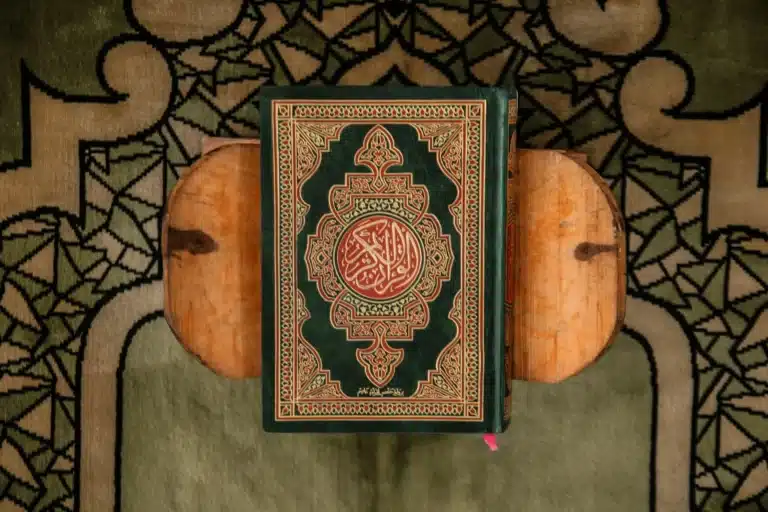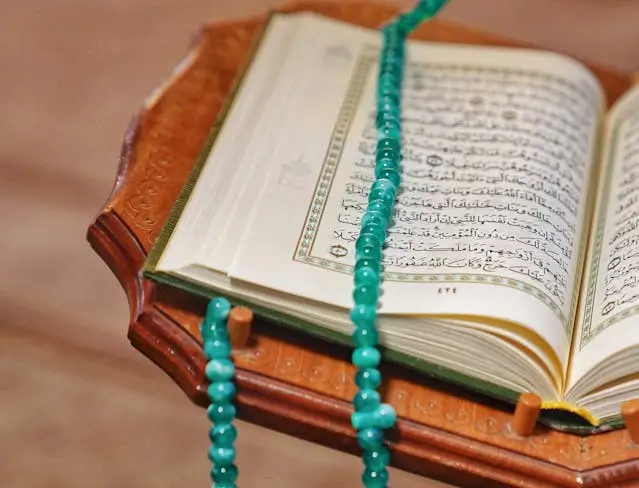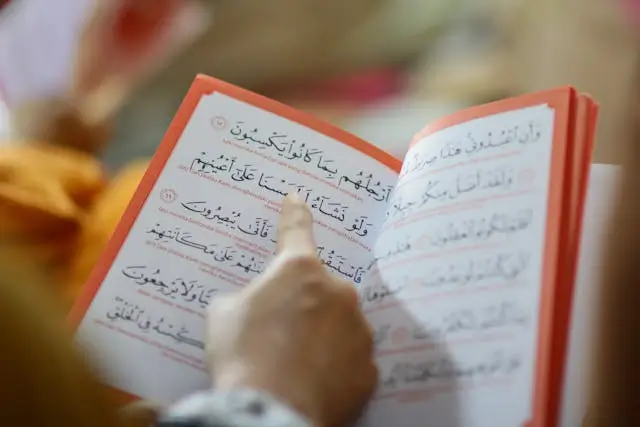Children’s Islamic Stories – 10 Inspiring Lessons for Young Hearts
Storytelling has always been a powerful way to shape young hearts. In Islam, stories are more than entertainment—they are tools of tarbiyah (moral and spiritual upbringing). The Qur’an teaches through stories of the Prophets, guiding believers toward faith, patience, honesty, and kindness.
Prophet Muhammad ﷺ encouraged parents to nurture children through gentle teaching and wisdom. Islamic stories help children connect with Allah, learn right from wrong, and develop good character inspired by the Qur’an and Sunnah.
Here are ten beautiful Islamic stories for kids — five from the lives of Prophets and five moral tales inspired by Islamic values — each filled with lessons your child can carry for life.

Prophet Stories (True Lessons from the Qur’an)
1. Prophet Muhammad ﷺ and the Old Woman – The Power of Kindness
In the bustling streets of Makkah, a kind-hearted man walked every day with a smile on his face—Prophet Muhammad ﷺ. Nearby, an old woman lived who often threw rubbish on him as he passed by. Some people were surprised he never shouted or got angry.
One day, the woman did not throw rubbish. Prophet ﷺ wondered why and went to her house. He found her sick and unable to care for herself. With a gentle smile, he asked about her well-being, and she was astonished by his concern. “Why are you being so kind to me after all I did?” she asked.
The Prophet ﷺ replied, “I do not wish to harm anyone, and I want you to know the truth about Allah.” Touched by his patience and kindness, she began to learn about Islam and accepted it.
Moral: True kindness softens even the hardest hearts and can guide others to the truth.
2. Prophet Yusuf (Joseph) and His Brothers – Forgiveness and Faith
Yusuf عليه السلام was a young boy loved by his father but envied by his brothers. One day, they threw him into a deep well and left him there. A caravan found him, and he was sold as a servant in Egypt. Despite these hardships, Yusuf remained patient and trusted Allah’s plan.
Years later, Yusuf grew up to be a wise and respected man in Egypt. When his brothers came seeking food during a famine, he could have punished them. Instead, he forgave them, saying, “No blame will there be upon you today. Allah has forgiven you, and I forgive you too.”
Moral: Patience and forgiveness always bring peace and Allah’s reward.
3. Prophet Musa (Moses) and the Sea – Trusting Allah
Prophet Musa عليه السلام led the Children of Israel out of Egypt. As they reached the Red Sea, Pharaoh’s army chased them. The people panicked, but Musa told them, “Do not fear. Allah is with us; He will guide us.”
With Allah’s command, the sea parted, creating a safe path for Musa and his followers. The army was swept away, and the believers reached safety.
Moral: When you trust Allah, He opens a way even when there seems to be none.
4. Prophet Nuh (Noah) and the Ark – Faith Against All Odds
Prophet Nuh عليه السلام preached for hundreds of years, calling his people to worship Allah alone. Most people ignored him, but he remained patient. Allah instructed him to build an Ark. Despite ridicule, he followed Allah’s command.
When the great flood came, Nuh and those who believed were saved in the Ark. This story reminds us that obedience and perseverance, even in the face of rejection, lead to Allah’s protection.
Moral: Keep faith and stay patient even if others don’t understand you.
5. Prophet Ibrahim (Abraham) and the Idols – Standing for Truth
Young Ibrahim عليه السلام noticed that his people worshipped idols. He asked them, “Do these idols help or harm you?” They had no answer. To show them the truth, he destroyed the idols, leaving only the largest one, and told them to ask it. The people realized the idols could not speak.
Ibrahim’s courage taught them about Tawheed — the belief in one Allah. He stood for truth, even when it was difficult.
Moral: Always stand for truth, even if you stand alone.
Moral Tales (Inspired by Islamic Values & Sunnah)
6. The Honest Young Merchant – Truth Brings Blessings
In the lively marketplace of Madinah, a young boy named Ali helped his father sell fruits. One busy morning, a customer approached and whispered, “I’ll give you extra money if you give me the best apples first, even if others are waiting.”
Ali looked around at the long line of people. He remembered the words of Prophet Muhammad ﷺ: “Honesty leads to goodness.” So he politely said, “I’m sorry, I must serve everyone in the order they arrived. Allah sees all that we do.”
The customer was surprised but impressed. “Your honesty is rare,” he said, buying a basket of apples. Soon, Ali’s honesty became known, and more customers came to buy from him. He realized that telling the truth and being fair brought blessings beyond money—it brought respect and trust.
Moral: Honesty builds trust and success, both in this world and with Allah.
7. The Date Seed – Small Acts of Charity
Little Fatima loved planting flowers in her garden. One day, she found a date seed and decided to plant it near the fence. “Maybe a bird will eat from it one day,” she said with a smile. She watered it daily, even though nothing grew at first.
Years passed. Slowly, a small sprout appeared, growing into a strong date tree. Birds rested in its branches, and neighbors enjoyed the sweet fruits. Fatima’s simple act of planting a seed had benefited many. She smiled, remembering Prophet Muhammad ﷺ said, “Even a smile for your brother is charity.”
Moral: Even the smallest acts of kindness and charity are seen and rewarded by Allah.
8. The Lost Coin – Gratitude and Patience
Ahmed, a young boy, saved his only coin to buy a small toy. On his way home, it slipped from his pocket. He searched everywhere, feeling sad. His mother noticed and asked, “Why are you so worried?”
Ahmed replied, “I only have this one coin.” His mother hugged him and said, “Alhamdulillah, Allah knows what is best. Let’s trust Him.”
The next day, Ahmed’s father surprised him with two coins. “For being patient and thankful,” he said. Ahmed realized that staying grateful, even in small difficulties, brings unexpected blessings.
Moral: Gratitude and patience invite Allah’s blessings and guidance.
9. The Boy Who Shared His Lunch – Generosity Multiplies Barakah
During recess at school, Sami noticed his friend Tariq sitting alone with an empty lunchbox. Sami hesitated for a moment, then said, “Do you want to share my lunch?”
Tariq’s eyes lit up. They ate together, chatting and laughing. Their teacher, watching quietly, praised Sami for his generosity. “Allah loves those who share what they have,” she said, smiling.
Later, Sami’s mother told him, “Even a small act of sharing brings blessings.” Sami realized that giving to others not only made his friend happy but also filled his own heart with joy.
Moral: Generosity, no matter how small, multiplies blessings and spreads happiness.
10. The Lamp in the Mosque – Doing Good for Allah Alone
In a quiet village, an elderly man named Ibrahim walked to the mosque every night carrying a small lantern. He placed it carefully near the entrance, lighting the way for worshippers. Nobody knew who was leaving the lamps, but every night, the mosque glowed warmly.
One day, the villagers discovered the secret. Instead of boasting, Ibrahim smiled softly. He remembered Prophet Muhammad ﷺ said, “The best deeds are those done secretly for the sake of Allah.” Ibrahim continued his nightly routine, content that Allah saw his good deeds, even if others did not.
Moral: The most valuable acts are those done sincerely for Allah alone.
How to Teach Islamic Stories to Kids Effectively
- Make storytelling interactive. Ask questions to spark curiosity and reflection.
- Set a bedtime story routine. Read one Islamic story each night — this builds a peaceful connection with Allah before sleep.
- Use visuals and books. Illustrated Islamic storybooks and children’s apps help kids visualize lessons better.
- Relate stories to real life. Help your child connect Prophet Yusuf’s honesty or Prophet Nuh’s patience to their own challenges.
Best Islamic Story Books & Resources for Kids
If you’re looking for high-quality storybooks or online sources, here are a few trusted names:
- Learning Roots – beautifully illustrated books for ages 3–10.
- Sahlah Academy & Iqra Network – online platforms with Qur’anic stories for kids.
- Ali and Sumaya – fun videos and story animations for Muslim children.
- Goodword Books – affordable storybooks covering the lives of the Prophets.
Benefits of Reading Islamic Stories Early
- Strengthens Iman (Faith): Kids learn about Allah’s mercy and power.
- Teaches Islamic Manners: Builds kindness, respect, and gratitude.
- Improves Family Bonding: Parents and kids share learning moments together.
- Builds Confidence: Children grow proud of their faith and identity.
Encouraging Kids to Reflect on Stories
After reading, ask simple questions like:
- “What did you learn from Prophet Yusuf’s story?”
- “How can we be kind like the Prophet ﷺ?”
Reflection transforms reading into lifelong learning.
Conclusion: Teaching Faith Through Stories
Stories are not just tales—they are seeds of faith and character planted in a child’s heart. Sharing these stories helps children understand Allah’s guidance, Prophets’ wisdom, and Islamic values in a simple, memorable way.
Parents can make storytelling part of bedtime, family gatherings, or Islamic studies. Through these 10 stories, children learn that faith, patience, honesty, kindness, and generosity are treasures that last a lifetime.
Give your child the gift of Islamic knowledge with our UK-based online Quran, Hadith, and Islamic Studies classes. Taught by qualified tutors in a fun and engaging way, our lessons nurture faith, manners, and love for Allah — all from the comfort of your home.
👉 Start your child’s learning journey today!







